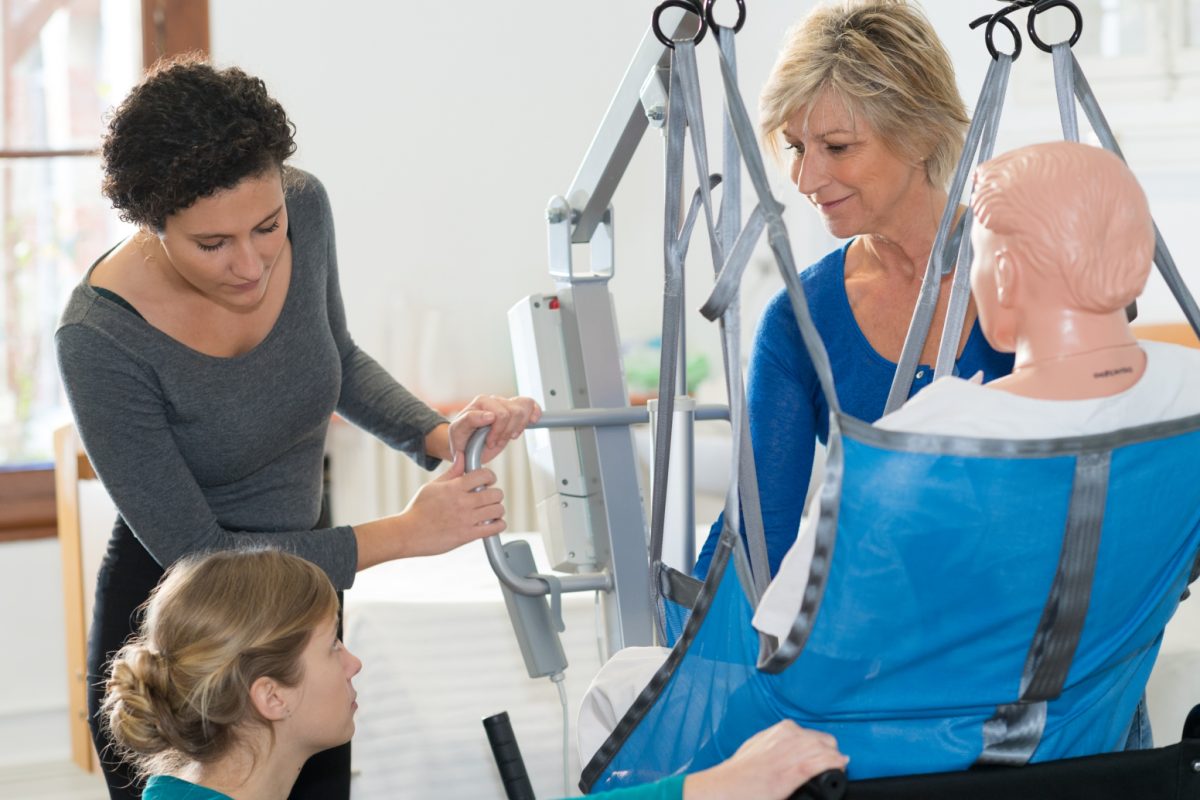
Volunteering Award
The Award in Volunteering Skills at SCQF Level 3, 4 and 5 provides formal recognation of volunteering activity. Through participation in volunteering activities. Through participation in volunteering Actvities, Candidates will develop range of skills and personal development experiences which will help to prepare them for responsibility, further education and employment.
Candidates learn about the context of volunteering: review and reflect on their own skills and volunteering experience; and complete an investigation project.
About this course
Cost: £200
Entry Requiements: Anyone working in a volunteering role can do this award
By completing your Volunteering Award CTC will teach you various skills, practices and procedures in your work environment. Our assessors have years of practice between them in the Volunteering sector. This wealth of knowledge gives our leaners the best learning experience in the business.
Funding
Get up to £200 towards the cost of a training course with an SDS Individual Training Account (ITA).
Are you eligible?
- Aged 16 or over
- Not in education or involved in any other SDS funded programme
- Unemployed and looking to get back into work
- Employed, earning less than £22,000 per year and looking to progress in or change your job
- Resident in Scotland
To apply for ITA funding please visit the link below. Once you have selected the course you will receive an email from us for further instruction.
Content
Each Award has three mandatory units (18 SCQF credit points):
- Preparing to volunteer
- Volunteering Experience
- Volunteering: Investigative Project
The amount of support that the candidate requires, their level of understanding, placement opportunities and their prior exceperience will determain the level of Award that is undertaken (SCQF Level 3, 4 or 5).
Who’s this award for
The Award is suitable for candidates with no previous volunteering experience, candidates, who are currently volunteers and those preparing to be volunteers.
Potential Candidates Include:
- S3 – S6
- College students
- Adult returners
- Anyone in a volunteering role
Units and Delivery tools
Structure of Volunteering Skills Award at SCQF Level 3 (18 SCQF Credit Points)
Mandatory Units
- Preparing to Volunteer – SCQF26 09
- Volunteering Experience – FR27 09
- Volunteering: Invesigative Project – FR28 09
Structure of Volunterring Skills Award at SCQF Level 4 (18 SCQF Credit Points)
Mandatory Units
- Preparing to Volunteer – FR26 10
- Volunteering Experience – FR27 10
- Volunteering: Investigative Project – FR28 10
Structure of Volunteering Skills Award at SCQF level 5 (18 SCQF Credit Points)
Mandatory Units
- Preparing to Volunteer – FR26 11
- Volunteering Experience – FR27 11
- Volunteering: Investigative Project – FR28 11
Progression
Successful candidates will be able to progress to further study or volunteering work. Learners may progress through the different level of the Awards or use them as a stepping stone to further study including higher level volunteering qualification.
Further Study
SCQF Level 4 from Level 3
SCQF Level 5 from Level 4
NC Working with Communities at SCQF Level 6
HNC Working with Communities at SCQF Level 7
Co-ordinating Volunteers at SCQF Level 6
Managing Volunteers at SCQF Level 7
PDA Volunteering Management at SCQF Level 8
Employment in the voluntary sector or volunteer management
Why deliver this qualification
The Volunteering Skills Award is open to all learners, regardless of age, academic experience or ability.
The achievement of other awards such as Saltire Award, Youth Achievement Award and the Duke of Edinburgh Award can contribute towards the Volunteering Skills Award. These other Awards exist for people under 25, however the Volunteering Skills Award has the added of being open to learners of every age. The award may be delivered in Schools, Colleges, Community Organisations and Volunteer involving organistaions (VIOs). Delivery can be flexible to suit the needs of individuals or groups and adapted to take into account whether candidates already volunteer or are new to volunteering. Centers may differ the Volunteering Skills Award to who already volunteer within there own institutions. This allows for acknowledgement of social and fundrasing committee members, class reps, school/college council reps, student mentors and learners who carry out important roles
Assessment
A wide range of methods can be used to access the Volunteering Skills Award. Assessment methods may include written and recorded oral evidence and performance evidence, leading to the compilation of a portfolio. The portfolio may comprise elements such as candidate notes, logbook and assessor observation checklist.
Additional Information
The learning by Volunteering Project (Learning through voluntary work | nidirect) has a range of resources, information and useful templates of value to centres and candidates. It includes advice and guidence and a comprehensive toolkit to support planning a placement and making the most of the volunteering experience.
If you have any questions or would like to enquire about the Volunteering Skills Award please feel free to contact us!

